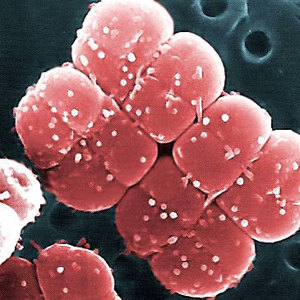Deinove partners with TWB to optimize Deinococcus production




Deinove
May 11, 2016
BY Deinove
Deinove, a biotech company developing innovative processes for producing biofuels and biobased chemicals by using Deinococcus bacteria as host strains, announced a technology collaboration with Toulouse White Biotechnology, a pre-industrial demonstrator in industrial biotechnology based on renewable carbon.
The project, conducted in collaboration with the MetaToul platform (INSA-LISBP Toulouse and MetaboHUB national infrastructure) headed by Jean-Charles Portais, aims to map the metabolic fluxes of the Deinococcus chassis, i.e. to create an inventory of all the potentialities of the microorganism in the production of molecules of interest. This mapping, both quantitative and qualitative, will serve as reference to identify and optimize all the metabolic pathways of the Deinococcus model to rapidly reach the target yield and productivity of industrial processes developed by Deinove. Deinve bases its development on cutting edge technological platforms and this project aims to further streamline its metabolic engineering projects and accelerate the industrial programs underway.
"This partnership will reinforce the unique expertise that we have built around Deinococcus. We will benefit from the excellence of TWB to increase the performance of our strain with a clear goal: moving towards the overproduction of a given compound. Our bacterium has major advantages as a bioindustrial chassis and our goal is to further enhance its fermentation performance to achieve commercial production processes as quickly as possible. This collaboration will make a major contribution," said Emmanuel Petiot, CEO of Deinove.
"Based on both internal resources and MetaToul's expertise, TWB was rapidly able to propose Deinove a comprehensive and ambitious collaborative project. Deinove, TWB partner since its inception, launched the project on 21 April in Toulouse. Everything is in place for the work to succeed on time and generate results that contribute to the success of Deinove’s industrial development," said David Guerrand, in charge of Industry Partnerships at TWB.
Advertisement
Advertisement
Advertisement
Advertisement
Related Stories
The U.S. Department of Energy Bioenergy Technologies Office (BETO) announced up to $23 million in funding to support research and development (R&D) of domestic chemicals and fuels from biomass and waste resources.
The U.S. DOE has announced its intent to issue funding to support high-impact research and development (R&D) projects in two priority areas: sustainable propane and renewable chemicals and algal system cultivation and preprocessing.
Sens. Sherrod Brown, D-Ohio, and Pete Ricketts, R-Neb., in August introduced the Renewable Chemicals Act, a bill that aims to create a tax credit to support the production of biobased chemicals.
The Chemical Catalysis for Bioenergy Consortium, a consortium of the U.S. DOE’s Bioenergy Technologies Office, has launched an effort that aims to gather community input on the development of new biomass processing facilities.
USDA on March 8 celebrated the second annual National Biobased Products Day, a celebration to raise public awareness of biobased products, their benefits and their contributions to the U.S. economy and rural communities.
Upcoming Events










